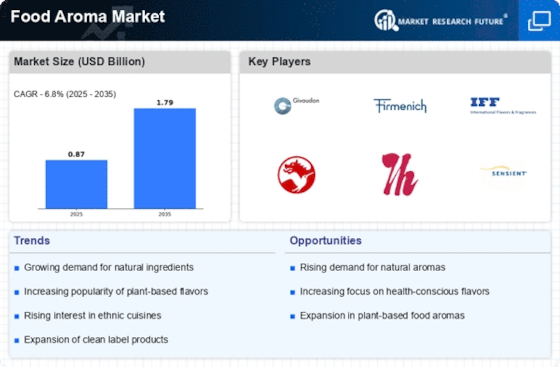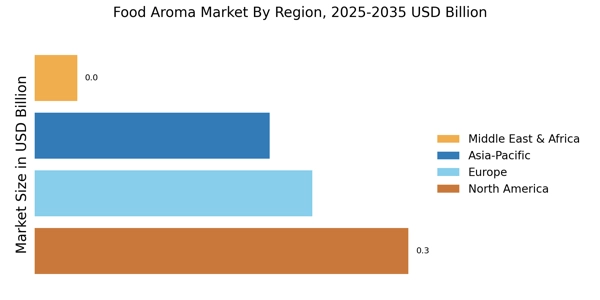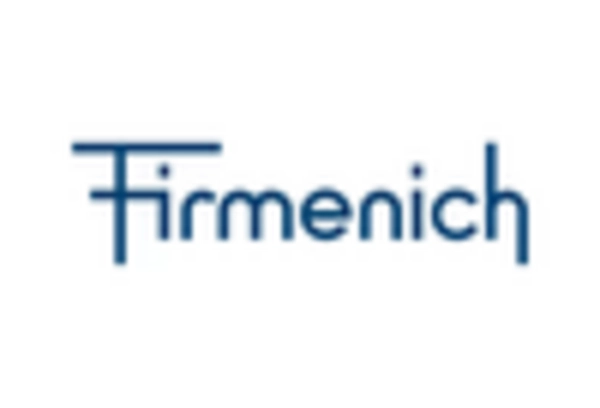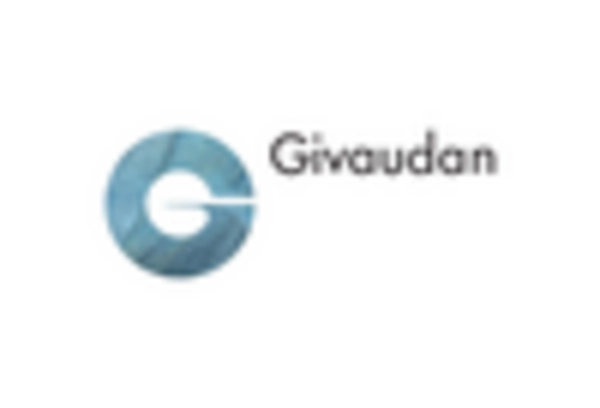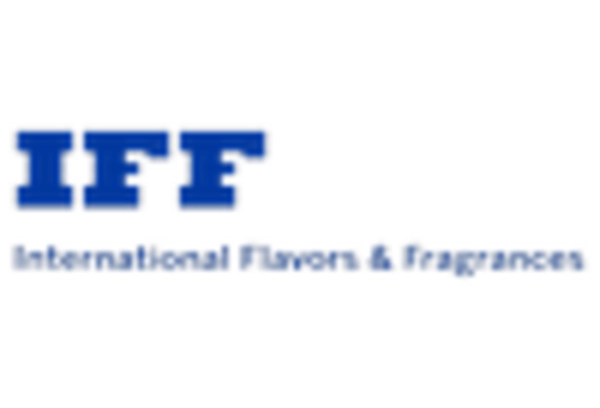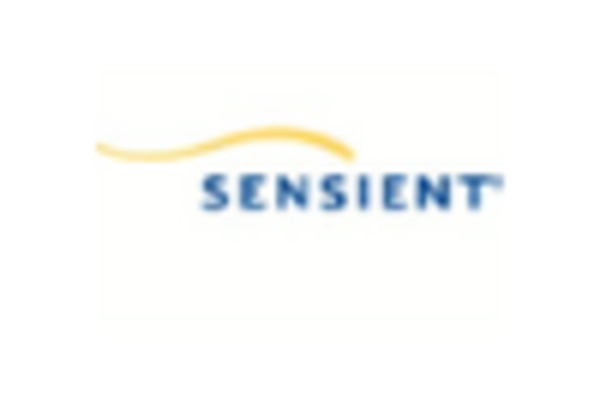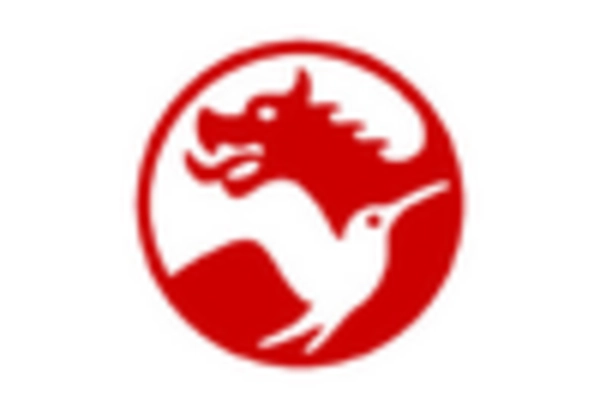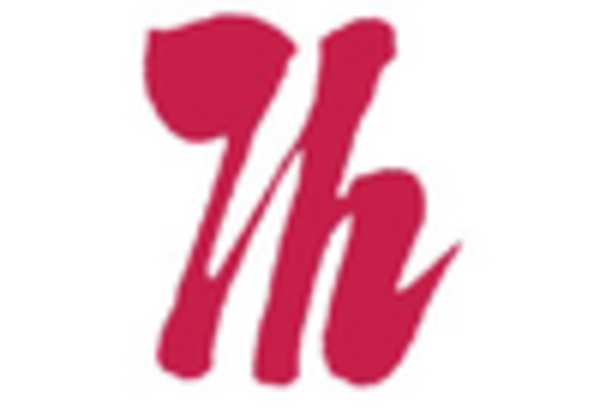Increasing Demand for Natural Flavors
The Food Aroma Market is witnessing a pronounced shift towards natural flavors, driven by consumer preferences for healthier and more authentic food experiences. As awareness of artificial additives grows, consumers increasingly seek products that contain natural ingredients. This trend is reflected in market data, indicating that the natural flavor segment is projected to grow at a compound annual growth rate of approximately 8% over the next five years. Manufacturers are responding by reformulating products to include natural aromas, thereby enhancing their appeal. This shift not only aligns with health-conscious consumer behavior but also supports the broader trend of clean label products, which emphasize transparency in ingredient sourcing. Consequently, the Food Aroma Market is adapting to these demands, fostering innovation in flavor development and ingredient sourcing.
Expansion of the Food and Beverage Sector
The Food Aroma Market is significantly influenced by the ongoing expansion of the food and beverage sector. As the global population continues to grow, the demand for diverse food products is escalating. This expansion is particularly evident in emerging markets, where rising disposable incomes and changing lifestyles are driving consumption patterns. Market data suggests that the food and beverage industry is expected to reach a valuation of over 10 trillion dollars by 2026, creating substantial opportunities for aroma manufacturers. The increasing variety of food products necessitates the incorporation of unique aromas to enhance flavor profiles, thereby propelling growth in the Food Aroma Market. This trend underscores the importance of innovation in aroma development to meet the evolving preferences of consumers.
Technological Advancements in Aroma Production
The Food Aroma Market is benefiting from technological advancements that enhance aroma production processes. Innovations in extraction and synthesis techniques are enabling manufacturers to create more complex and appealing aromas. For instance, advancements in biotechnology and flavor encapsulation are allowing for the development of aromas that are more stable and longer-lasting. This is particularly relevant in the context of the growing demand for clean label products, where consumers seek transparency and quality. Market data suggests that the adoption of these technologies could lead to a 15% increase in production efficiency over the next few years. As a result, the Food Aroma Market is poised to leverage these advancements to meet consumer expectations for high-quality, natural aromas.
Growing Interest in Health and Wellness Products
The Food Aroma Market is increasingly influenced by the growing interest in health and wellness products. Consumers are becoming more aware of the impact of diet on overall health, leading to a demand for food products that not only taste good but also offer health benefits. This trend is reflected in market data, which shows that the health and wellness food segment is expected to grow by 7% annually. As a result, manufacturers are incorporating functional aromas that enhance the sensory experience while promoting health benefits. This shift is prompting the Food Aroma Market to innovate in the development of aromas that align with health trends, such as those that support digestive health or boost immunity. Consequently, the industry is adapting to meet the evolving needs of health-conscious consumers.
Rising Popularity of Gourmet and Artisanal Foods
The Food Aroma Market is experiencing a surge in demand for gourmet and artisanal foods, which are characterized by their unique flavors and high-quality ingredients. This trend is largely driven by consumers' desire for premium food experiences that offer distinct taste profiles. Market data indicates that the gourmet food segment is projected to grow at a rate of 6% annually, reflecting a shift towards more sophisticated culinary experiences. As consumers become more adventurous in their food choices, the need for innovative aromas that complement gourmet offerings becomes increasingly critical. This shift not only enhances the overall dining experience but also positions the Food Aroma Market as a key player in the premium food segment, encouraging manufacturers to invest in high-quality aroma solutions.


